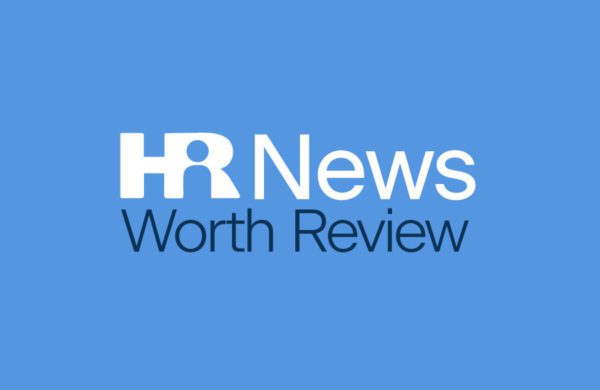In an era where Generation Z (Gen Z) has begun to make their mark in the workforce, understanding this digitally savvy, diverse and socially conscious group has become a priority for many companies. Their unique perspectives and values are not only influencing the future of work but are also paving the way for fresh conversations and new values in the workplace.
Let’s dive deeper into what it takes to engage, attract and retain this valuable talent pool.
What (or who) is Gen Z?
Understanding Gen Z starts with knowing who they are. This group, born between 1997 and 2012, is the most diverse generation and the fastest-growing age group in the workforce. In fact, Forbes estimates that by 2025, Generation Z workers will make up almost a quarter of the workforce.
Generation Z is a group of digital natives with little or no memory of the world before smartphones, which has shaped their communication and work styles. Major events, such as the COVID-19 pandemic, the global economic crisis and the rise of social media, have shaped their views and fostered traits like resilience and adaptability. Forbes says that Gen Zers also place more emphasis on diversity, equity and inclusion than past generations, and they have a strong sense of ethics and a desire to address social issues.
What is important to Gen Z in the workplace?
In the workplace, Gen Z values flexibility, work-life balance, competitive compensation and a sense of purpose in their work. They prioritize purpose over payment, which sets them apart from other generations in the workforce. But, it’s not all about the money. They also expect up-to-date technology, job security and additional corporate incentives.
Moreover, Gen Z employees are particularly keen on achieving a greater level of alignment with their values and seeing diversity, equity and inclusion reflected in their workplaces. In fact, according to a survey by Monster, 83 percent of Gen Z candidates consider an organization’s commitment to diversity, equity and inclusion when choosing a job.
How to Engage Gen Z in the Workplace
Engaging Generation Z employees requires more than just understanding them. Businesses need to offer environments and benefits that align with their values and expectations. Among the key strategies that can help engage Gen Z in the workplace are offering flexible work arrangements, providing competitive compensation and fostering a culture of diversity. Now, let’s explore these strategies further and their potential applications in the workplace.
Competitive Compensation and Benefits
Just like any other generation, Gen Z prioritizes competitive remuneration packages, including competitive pay and health insurance. They value salary transparency and equity and believe that they should receive fair wages. In addition to pay and health insurance, Gen Z employees also value benefits like dental, vision, life, disability and critical illness insurance.
Flexible Work Arrangements
Creating a flexible work environment is one of the key strategies that can be utilized to engage Gen Z in the workplace. Thanks to their digital proficiency, Gen Zers are well suited to remote work and flexible schedules, and many prefer it or even view it as a necessity. A survey by GOBankingRates found that 29 percent of Gen Z workers want to work remotely and 27 percent view remote work as a necessity. With this in mind, giving Gen Z employees the choice to work remotely or on a hybrid schedule has the potential to be beneficial for not only recruitment and morale but also productivity.
Foster a Culture of Diversity, Equity and Inclusion
The most diverse generation to date, Gen Z values diversity, equity and inclusion in the workplace. Companies with diverse representation in leadership are likely to be more successful in attracting and retaining Gen Z talent.
Companies can help cultivate a culture of diversity, equity and inclusion by:
- Setting clear DEI goals
- Diversifying recruitment and hiring practices
- Establishing Employee Resource Groups (ERGs)
- Providing diversity and inclusion training
- Conducting pay equity reviews
- Establishing equitable policies in the employee handbook
- Seeking regular employee feedback
- Fostering a sense of belonging among employees while celebrating differences
For Gen Z, a commitment to diversity, equity and inclusion is not merely desirable; it’s mandatory.
Prioritize Mental Health
Mental health is a significant factor for Gen Z in the workplace, and companies that prioritize employee wellbeing are more likely to attract and retain top Gen Z talent. In fact, according to a LinkedIn survey, 66 percent of Gen Z workers would like to see increased investment in mental health and wellness as a means of improving company culture.
To prioritize mental health, companies can institute a wellness program and convey that they value the wellbeing of their employees through initiatives like stress management programs. By doing so, companies can foster a supportive environment that aligns with Gen Z’s workplace expectations.
Offer Unique Benefits
In the workplace, Gen Z values unique benefits, such as the capacity to work from home, employee appreciation awards, flexible work options and telemedicine services. In addition to these, companies can offer more traditional benefits like health insurance, parental leave, dental and vision insurance, student loan assistance and life insurance.
Discretionary benefits, such as commuter advantages, financial wellness programs and pet insurance, can resonate with Gen Z workers, since these can cater to their specific needs and priorities. Offering such benefits can allow employers to demonstrate that they understand and support the unique needs and interests of Gen Z workers, thus enhancing employee engagement and satisfaction.
Integrate Technology in the Workplace
As digital natives, Gen Z doesn’t view the integration of technology in the workplace as a luxury; for them, it’s a necessity. They expect businesses to utilize the most recent technologies in the workplace to facilitate processes, augment cooperation and foster communication.
Members of Gen Z in the workplace are recognized for their use of a wide range of technology tools and their proficiency and adaptability when using such tools. They may even use the same tools in their personal lives, such as virtual reality, machine learning and artificial intelligence, which has the potential to reduce the training time or learning curve when implementing new technologies. Overall, the integration of technology in the workplace offers several advantages for Gen Z employees in terms of hiring, productivity and employee morale.
Offer Development and Training Opportunities
Professional development is of significant importance for Gen Z’s career advancement. They appreciate opportunities for ongoing learning and acquiring new skills, such as formal training, career development programs and structured mentorships. By participating in these programs, Gen Z workers can effectively retain knowledge and skills for their future growth, and employers can help workers reach their career goals while bolstering company loyalty.

How to Attract Gen Z Employees
Attracting Gen Z workers involves more than just offering competitive salaries and flexible work arrangements. It’s about understanding their values, preferences and expectations and then implementing strategies that cater to these unique needs.
Gen Z job seekers aspire to:
- Be actively engaged, connected and aligned with their employers and peers
- Participate in opportunities for continuous growth and learning
- Engage in purposeful, meaningful work
- Be given the opportunity to be flexible and independent in their work
In addition to appealing to these aspirations, in order to attract Gen Z job candidates, HR teams can use a personalized recruitment process that includes digital engagement and interactive assessments. Throughout the process, the company’s culture, particularly its commitment to flexible work and diversity, equity and inclusion, should be highlighted to appeal to Gen Z’s job preferences. Showcasing the organization’s broader mission and values beyond making money can be an effective way of attracting Gen Z talent.
The Importance of Gen Z Talent
Gen Z, the most diverse and technologically adept generation, is reshaping the workforce with their unique values and expectations. Companies aiming to attract and retain this valuable talent pool must adapt their strategies to meet these needs. Gen Z talent is the future of the workforce, and by understanding and addressing their needs and preferences, businesses can help ensure the long-term success of their organization.
In today’s rapidly evolving workplace, effectively engaging with the Gen Z workforce is more crucial than ever. If your organization is looking for innovative strategies to attract, retain and engage Gen Z talent, Higginbotham’s HR Services team is here to assist. Get in touch with our team today to discover how we can help support your organization in harnessing the power of your Gen Z workforce and driving your business forward.





